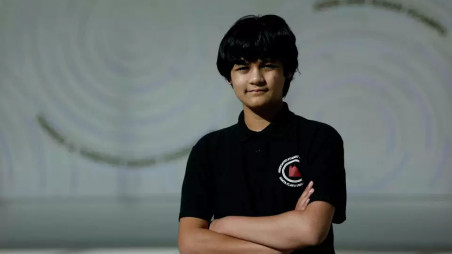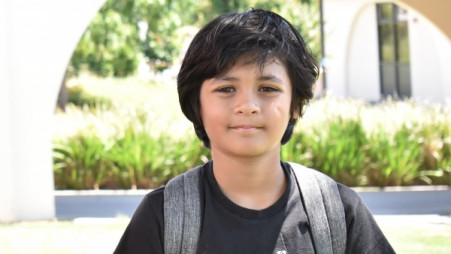At Citadel Securities, he will focus on global trading infrastructure, working at the intersection of engineering and quantitative problem-solving
Hindustan Times
20 August, 2025, 07:25 am
Last modified: 20 August, 2025, 07:32 am
Quazi became the youngest graduate of Santa Clara University before joining SpaceX’s Starlink division, where he worked on software that guided satellite beams to deliver reliable internet to millions of users worldwide.Photo: Collected
“>

Quazi became the youngest graduate of Santa Clara University before joining SpaceX’s Starlink division, where he worked on software that guided satellite beams to deliver reliable internet to millions of users worldwide.Photo: Collected
Kairan Quazi, who joined Elon Musk’s SpaceX as an engineer at just 14, is leaving the aerospace company after two years to start a new role at Citadel Securities in New York.
The 16-year-old told Business Insider that he felt ready to take on new challenges and expand his skill set in a different high-performance environment.
Quazi became the youngest graduate of Santa Clara University before joining SpaceX’s Starlink division, where he worked on software that guided satellite beams to deliver reliable internet to millions of users worldwide. His decision to move to Citadel Securities, one of the world’s most influential high-frequency trading firms, highlights how the financial sector is competing with top AI labs and major technology companies for engineering talent.
Keep updated, follow The Business Standard’s Google news channel
Why Quazi chose finance over AI
Despite receiving offers from leading AI research labs and global technology companies, Quazi opted for Citadel Securities because of its combination of intellectual complexity and rapid feedback.
Unlike the longer timelines of aerospace and AI projects, quantitative finance allows engineers to see a measurable impact within days.
“Quant finance offers the same intellectual challenge as AI research but with much faster results,” he said.

At SpaceX, Quazi contributed to production-critical systems, ensuring Starlink satellites maintained accuracy in their beam targeting. At Citadel Securities, he will focus on global trading infrastructure, working at the intersection of engineering and quantitative problem-solving.
Quazi has long defied traditional education and career timelines. A Bangladeshi-American prodigy, he skipped from third grade to college by the age of 9 and completed an internship at Intel Labs at 10.
At 14, he became the youngest employee at SpaceX, marking the start of a remarkable early career.
Kairan Quazi was born in Pleasanton, California, to Bangladeshi parents Mustahid Quazi and Jullia Quazi. His family traces its roots to the Muslim Quazi community of Manikganj in Bangladesh. His father worked as a chemical engineer, while his mother built a career as a Wall Street executive.
Doctors recognised Kairan’s exceptional intellectual and emotional intelligence at the age of two. He went on to join Mensa International and became a member of the Davidson Institute’s Young Scholar programme, marking the beginning of his journey as a prodigy.
Now, at 16, he is set to live independently in Manhattan, with his new workplace just a 10-minute walk from his apartment. The move also marks a personal milestone, freeing him from the logistical challenges of his mother driving him to SpaceX’s Redmond office due to his lack of a driving licence.

